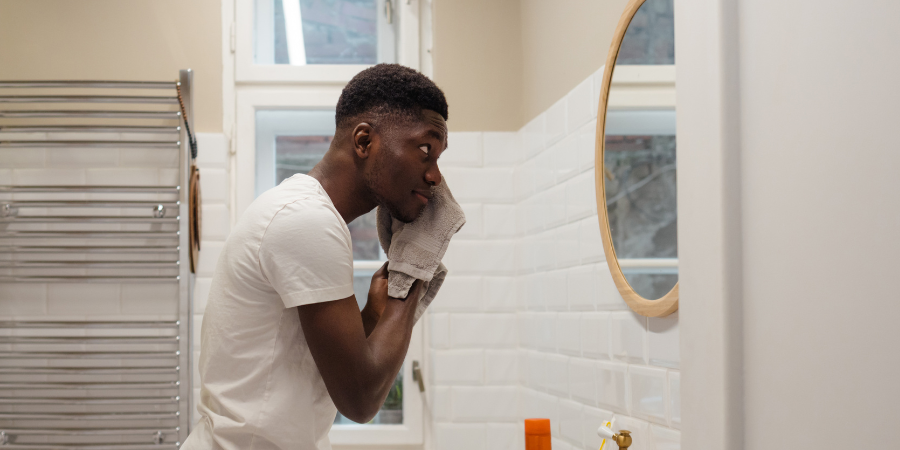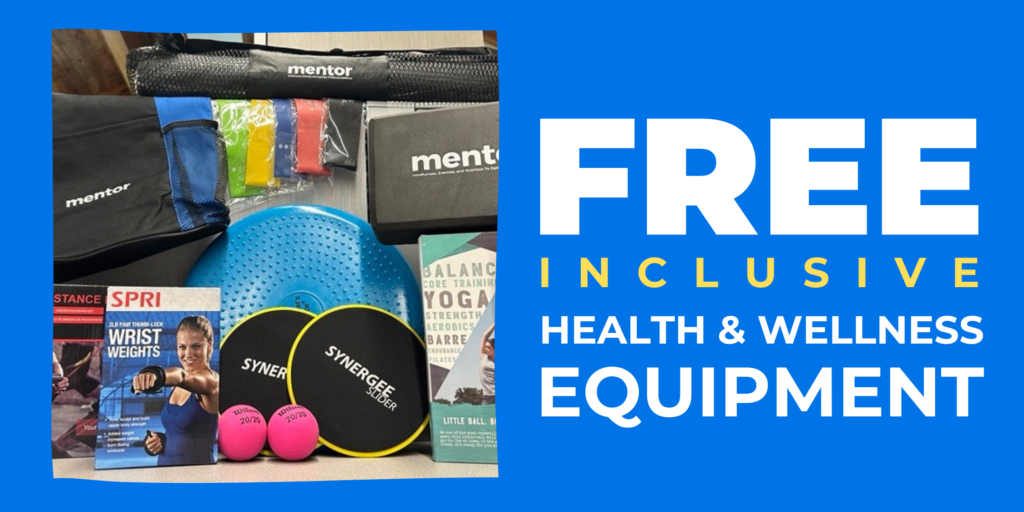Self-care is so important for maintaining mental and physical well-being, but it’s often overlooked in our busy daily lives. The demands of work or caregiving responsibilities can take up so much time and energy, leaving little room for self-care activities. We might also feel certain pressures and expectations that can make productivity seem more important than personal well-being.
The third letter in MY SCORECARD from the NCHPAD MENTOR Program, S, is one wellness domain that includes many others. It stands for “Self-care” and covers anything from physical and mental health maintenance to promoting self-advocacy.
Self-care can be broken down into two unique perspectives:
- Psychosocial self-care – things you can do to promote self-awareness, self-advocacy and self-compassion.
- Physical self-care – things you can do to keep your physical body healthy.
Psychosocial Self-Care
To start practicing psychosocial self-care, the first thing to do is avoid self-criticism. Although being critical of yourself is a common experience for many, when you do it too much or become too critical, it can be very unhealthy. And if you become too critical, seeking professional assistance may be necessary.
Excessive self-criticism can lead to what is known as ruminative negative thought patterns, which impact effective self-care. These negative thoughts constantly occupy a person’s mind, making it hard to think about anything else – and hard to stay healthy.
There is good news, though. We can be taught to reduce self-criticism through greater self-compassion. A prominent figure in self-compassion research is Dr. Kristen Neff, who defines self-compassion as the “practice of being kind and understanding to ourselves when confronted with a personal flaw or failure.”
Dr. Neff suggests that the best way to overcome self-criticism is to practice what it feels like to treat yourself the same way you would treat a friend having this difficulty. Simply treat yourself with the same kindness and compassion you would offer to a friend encountering similar challenges.
Self-awareness is another important part of self-advocacy. Self-awareness is defined as “the ability to accurately recognize one’s own emotions, thoughts, and values and how they influence behavior.”
In other words, the ability to accurately assess your own strengths and limitations with a well-grounded sense of confidence, optimism and a growth mindset. Improved self-advocacy comes from enhanced self-awareness, which leads to better self-care practices.
Enhancing psychosocial self-care also involves maintaining a positive psychological outlook. Some experts refer to this as empowerment health, which involves the development of essential life skills that promote independence. One way to develop these skills can be through engaging in quality self-care activities that provide meaningfulness to your life.
Physical Self-Care
Physical self-care for individuals with disabilities can be put into three main areas:
- Managing medical or behavioral aspects of the condition(s), such as taking medication.
- Preventing or managing secondary and chronic conditions through health-promoting behaviors like physical activity or exercise.
- Removing environmental obstacles, such as ensuring access to quality healthcare and implementing assistive technology at home to prevent falls, for example.
Some of the most essential aspects of self-care involve maintaining good bowel, bladder and skin care. Each of these may require special attention to avoid any health issues.
Bowel management is important for protecting participants from other health issues that can result from poor bowel maintenance.
Good bladder maintenance can avoid common urinary tract infections. You can maintain good bladder health by regular emptying, avoiding increased bladder pressure and preventing complications. This will lower your risk of infections, improve social continence and prevent autonomic dysreflexia, which is the excessive rise in blood pressure.
Additionally, individuals with spinal cord injury (SCI) and other forms of paralysis face a significant risk of developing pressure injuries, commonly known as pressure ulcers or pressure sores.
To prevent these injuries, it’s important to regularly change positions to alleviate pressure on bony areas. While in a wheelchair, engage in activities like wheelchair pushups, leaning side to side and bending forward over your knees. Additionally, always use a high-quality wheelchair cushion.
Maintaining skin health involves avoiding soaps labeled “antibacterial” or “antimicrobial.” These soaps can disrupt the skin’s acidity, which serves as a natural protection against infection. Keep skin clean and dry by washing with soap and water daily and thoroughly rinsing and drying afterward.
Two other areas of physical self-care include proper use of medications and good oral health. Taking medications is a critical area of physical self-care for people with and without disabilities and can help maintain certain health conditions.
Good oral health through regular flossing and brushing teeth is essential to avoid further health complications that stem from improper oral hygiene.
Suggestions for better Self-Care
A good way to practice self-care involves engaging in meaningful activities. Everyone needs to have something in life that ignites enthusiasm and anticipation regularly. Engaging in activities such as art, sculpting, reading, writing, woodworking, crafting, quilting or learning a musical instrument is crucial for filling each day with sources of enjoyment and satisfaction.
Participating in activities like taking an art class, joining a book club or following a favorite sports team are effective ways to do activities you enjoy while making connections with friends, colleagues and family members.
To get to the heart of self-care, try making a list of which daily activities are bringing you joy. Then make a list of which activities are negatively impacting you. From there, make a plan to increase your daily positive activities and reduce the negative experiences.
Here are some examples:
- If you enjoy being outdoors but are indoors most of the day, take a short break and go outside to come back refreshed!
- Don’t like taking out the trash? If you have a pet, use that time to take your pet out for some exercise.
- Instead of scrolling on a mobile device before bed, make a list of exciting books you would like to read and set a goal to read a little every night.
- Don’t like doing household chores? Mix in your positive activities and listen to your favorite songs while accomplishing your tasks.
Taking care of yourself may seem simple, but it’s easier said than done when you have a recent diagnosis, a newly acquired disability or a health condition. Individuals who need certain types of support must advocate for themselves with their doctor or other health professional. Self-care starts with self-awareness! Need help finding adaptive resources for activities or health tips? Contact us and get in touch with one of our expert inclusion specialists!




